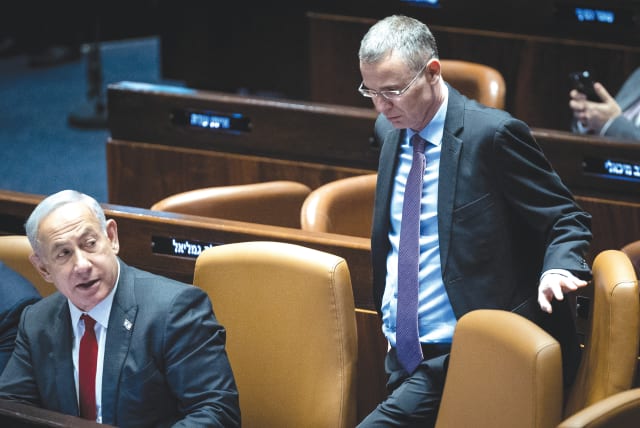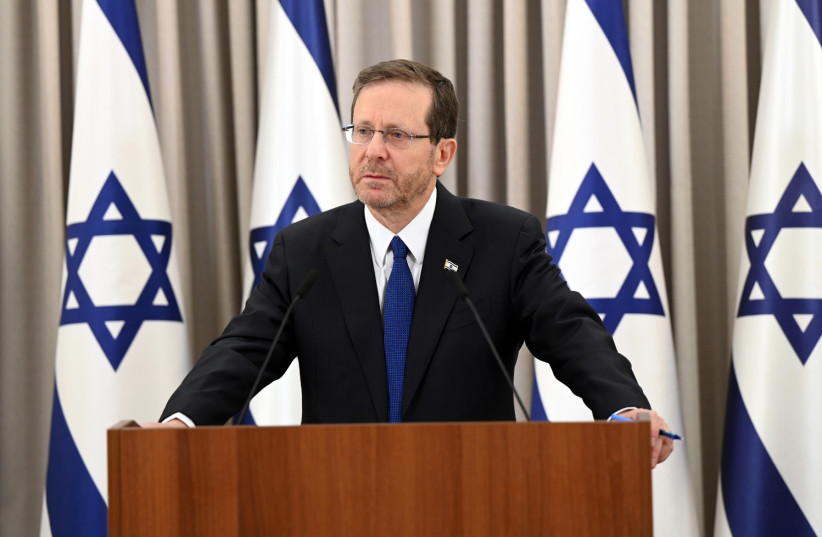Consensus on Israeli judicial reform can't be quick - opinion

Without going into a discussion of the president’s five points, I would like to consider the appropriate way for reaching the agreements he spoke about.
Last week, President Isaac Herzog called on the representatives of the branches of government to begin a dialogue. He said that an agreement could be reached within a short time, on the basis of the principles he laid out in his speech.
We should congratulate him for his attempt to put the brakes on the aggressive legislative process of the government. Especially important was his explicit call not to bring the bill to the Knesset for its first reading and the fact that Herzog, like many others, perceives the reform as having a toxic potential for Israel’s democratic foundations. This has been the key argument all along: Levin and Rothman’s proposal shatters the fundamental values of the democratic system; if implemented, Israel would no longer be a democracy.
Without going into a discussion of the president’s five points, I would like to consider the appropriate way for reaching the agreements he spoke about.
The reform proposed by the justice minister would totally transform the ground rules of the system and change the basic powers of its players: Politicization of judicial appointments, which would mean political control of the courts (instead of their functioning as an independent branch of government); an Override Clause and the provision that the Supreme Court cannot strike down a Basic Law, which would mean an end to the separation of powers and eliminate all restrictions on the legislature and executive; the abolition of the ground of unreasonableness alongside subordination of ministry legal advisers to the political branch, which would allow the Government to make any decision it pleases, no matter how corrupt or destructive to our rights. These are the issues on the table.
These changes require extensive amendment of the Basic Laws, which are supposed to be the chapters of our constitution. Until recently, the passage and amendment of Basic Laws were approached with great caution, usually carried out slowly, and with broad agreement. This time, however, it seems that the government wants power – just power. We have seen sessions of the Knesset Constitution, Law, and Justice Committee of a sort never seen before; hasty and brutal, sometimes contemptuous and humiliating, to the point that it seems that the race to the finish line, the rapid passage of the reform, justifies all means.
A compromise on judicial reform can't be reached in a short time
This is why the president’s statement that an agreement could be reached within a short time is problematic. In fact, constitutional arrangements cannot be made within a short time. The drafting of a Basic Law: Legislation is especially complex and has been discussed for many years now. Regulating the relations among the branches of government in a way that could once-and-for-all win broad consensus and resolve the problems between them is not a matter of days.
How is it possible to talk about an override clause without enacting a bill of rights and dealing with the question of whether there are certain rights that must remain inalienable? Even then, for how long would the override be in effect and by what procedure? If the High Court needs a supermajority to strike down laws or if the law that was annulled can be sent back to the Knesset, perhaps there is no need for an override clause.
It is not enough to say that Basic Laws would be enacted by means of four readings in the plenum and a large majority of MKs. We need to define the status of the current Basic Laws and whether all their articles need to be entrenched by a supermajority. And we have not yet addressed the Declaration of Independence and the fundamental principles it sets forth; without doing so it is hard to think about a constitution.
Constitutional arrangements require a special, appropriate and serious procedure, based on broad agreement. It isn’t possible to conduct discussions about constitutional reforms that should be accepted by all, as long as the reform proposals are the basis for the discussion, or are a Damoclean sword hovering above their opponents. Enacting a constitutional reform requires true dialogue, with fair and candid debate. What is happening around us shows that, for now, there is no interest in such a dialogue.
And so Herzog, it is impossible to discuss constitutional arrangements and reach an agreement within a few days. But it is certainly feasible, as you said, to set up a committee that will hopefully be able to work towards reaching agreements about the procedure itself.
The writer is the vice president of the Israel Democracy Institute.
Jerusalem Post Store
`; document.getElementById("linkPremium").innerHTML = cont; var divWithLink = document.getElementById("premium-link"); if (divWithLink !== null && divWithLink !== 'undefined') { divWithLink.style.border = "solid 1px #cb0f3e"; divWithLink.style.textAlign = "center"; divWithLink.style.marginBottom = "15px"; divWithLink.style.marginTop = "15px"; divWithLink.style.width = "100%"; divWithLink.style.backgroundColor = "#122952"; divWithLink.style.color = "#ffffff"; divWithLink.style.lineHeight = "1.5"; } } (function (v, i) { });

